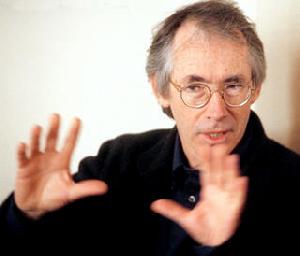
Hopefully these holidays you are revising and reading to be up to speed next term. Check out reviews of Enduring Love to get some ideas. Here is what Kirkus Reviews had to say about the novel:
A sad, chilling, precise exploration of deranged love, by the author of, among other works, the novels The Innocent (1990) and Black Dogs (1992). Joe Rose, a middle-aged science writer, takes his wife Clarissa to London’s Hampstead Heath for a picnic–and stumbles into a tragedy when a man and his young grandson, on a jaunt by balloon, get into serious trouble. Joe is among the bystanders who race to seize the balloon, which is damaged, close to the ground, and being pushed by high winds toward a precipice. One of the rescuers dies. In the aftermath, Joe exchanges words with Jed Parry, a deeply disturbed young man among those who came rushing to help. Isolated, independently wealthy, Parry has attempted to suppress his homosexual inclinations by immersing himself in a fervent and very personal version of Christianity. Parry quickly fixates on Joe, and, deciding that he is meant to be the means by which Joe, a nonbeliever, will be brought back to God, Parry begins haunting him. He shadows Joe’s movements around London, loiters outside his apartment, constantly leaves messages and letters. It’s not only God’s love that Parry believes he’s carrying; he’s also, in a confused and only partially conscious manner, convinced that Joe loves him and knows everything about him. Joe’s increasingly angry attempts to rid himself of Parry seem to the obsessed man only another test of his devotion, while Joe and Clarissa’s marriage begins to crumble under the strain, as do their careers. Finally, a desperate Parry decides he must get rid of Clarissa and, possibly, even Joe himself. In lesser hands, the story might be overwrought and unbelievable, but McEwan’s terse, lucid prose and sure grasp of character give resonance to this superb anatomy of obsession and exploration of the mind under extreme circumstance. Painful and powerful work by one of England’s best novelists.
Could you answer the following questions about the book:
1. Which is the enduring love the title refers to?
2. Look carefully at the first chapter and talk about the way in which it holds the promise of the whole novel.
3. The narrator says, “I’m lingering in the prior moment because it was a time when other outcomes were still possible” (page 2). Discuss this as a theme throughout the novel.
4. How does science infuse this story? Discuss the different theories described and explained and their importance to this novel.
5. The author writes of “… morality’s ancient, irresolvable dilemma: us, or me” (page 15) in relation to the balloon accident. Does this apply to other situations in the novel as well?
6. Joe describes how Clarissa views the trend in science toward neo-Darwinism, evolutionary psychology, and genetics as “rationalism gone berserk, ” and adds that she thought “everything was being stripped down… and in the process some larger meaning was lost” (page 75). Discuss this as a theme in the novel.
7. Did you think at the beginning that Joe and Clarissa’s relationship would reach the crisis point it did? Did you think that Joe and Clarissa’s love would endure? At different points, what made you think so?
8. In chapter nine, the author switches from first-person to third-person point of view, where the reader is in Clarissa’s head as imagined by Joe. Talk about this unusual choice. What does it add to your understanding of Joe? Of Clarissa?
9. Did you doubt Joe, as Clarissa and others did? Did the author want you to?
10. In responding to Jean Logan’s theory of her husband’s tryst, Joe says,”But you can’t know this… it’s so particular, so elaborate. It’s just a hypothesis. You can’t let yourself believe in it” (page 132). Discuss the irony of Joe’s remembering, moments later, what he’s read about de Clerambault’s syndrome.
11. At the moment before Clarissa first tells him it’s over between them, Joe thinks about love, about how it “generates its own reserves.” About how “conflicts, like living organisms, had a natural lifespan” (page 155). Later he notes that “… sustained stress is corrosive of feeling. It’s the great deadener” (page 231). In light of what happens in this novel, in what ways is Joe right or wrong about this?
12. In both Amsterdam and Enduring Love, characters at a police station have faulty memories of events. Talk about the role of unreliable perceptions in this novel.
13. “It’s like in banks. You never say money. Or in funeral parlors, no one says dead” (page 205). Though this is not a comic novel, the author uses observational humor throughout. Talk about other examples of humour in the novel.
14. The novel ends with the children and the river. What is the author saying with this choice?
15. In the appendixes, we’re reminded (with Jed’s letter) that “it is not always easy to accept that one of our most valued experiences may merge into psychopathology” (page 259). Is this true in your experience?
16. Why did the author choose to let us know that Joe and Clarissa reconciled (and adopted a child) with a line in a case study in the appendix?







